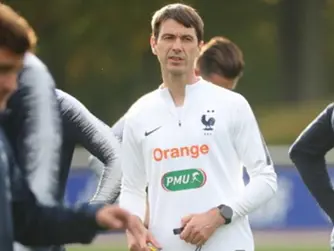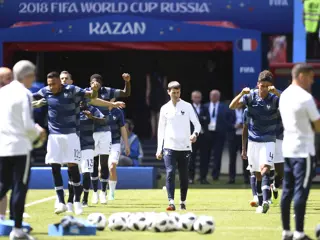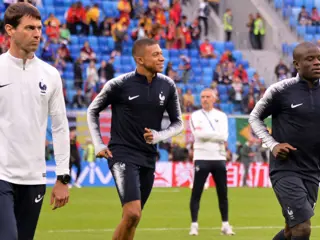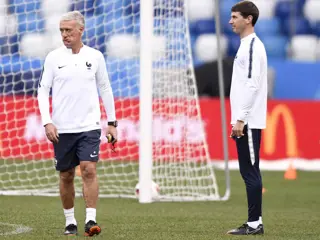Foresight
When new technology arrives so fast, players need a voice they can trust
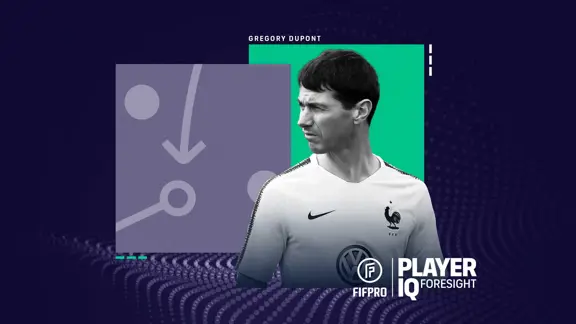
Football has always been my passion. You could say it has been in my blood, from my early days as a player in the French league to my work today as a scientific advisor on health and performance.
It has been my privilege to serve under some of the great coaches, including Didier Deschamps and Zinedine Zidane. On the training pitches of Real Madrid, I saw the breath-taking talent of the finest young athletes but also sensed their vulnerability.
Surrounded by a new digital world that is hungry for their data, young players can feel overwhelmed. Suddenly, they face the same questions that I have wrestled with for years: how can technology help us to perform better while respecting our human boundaries? How do we ensure that a new tool serves our needs – and not the other way around? How do we know who to trust?
A vision takes time. I began to find mine when my career on the pitch came to an end and I returned to the world of academia. At the University of Lille, in France, I completed a PhD in sports science and medicine. Years of research opened a new path and I began to hear my calling: here was a growing body of knowledge, ideas, and tools that could transform the lives of footballers – help them to take better care of their body and mind, improve their performance, and enjoy longer careers.
Workload was an early theme. In 2010, I co-published a landmark study in the American Journal of Sports Medicine, which showed how the risk of injury increases when footballers play two matches per week instead of one: we observed 25 injuries for every 1,000 hours of competition instead of only four. Players needed to find the right balance; science could certainly help.
Since then, FIFPRO has developed their own metric on the risks of back-to-back matches. Their approach echoes my central concern, that players are far more vulnerable to injury when they play a second match within five days of the first. If this continues over long periods, the risk of injury increases significantly, as does its gravity.
My early research opened a path to the world of coaching too. I began to see how I could help clubs with smaller budgets – by helping them to design the intelligent strategies that would allow them to compete with bigger teams.
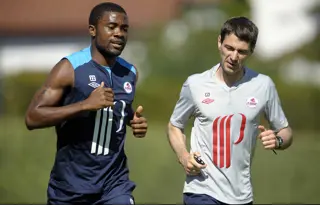
Lille Olympic Sporting Club gave me my first professional opportunity. I worked in the youth academy where, despite limited means, we developed a crop of exciting young talent – Eden Hazard was one of our outstanding pupils. Then, Glasgow Celtic saw what I was trying to do and gave me the chance to build a new home, the home that my vision was looking for: a comprehensive Sports Science Department.
Now I could finally apply my scientific research to the practice of modern football. Challenges such as workload had only deepened: players now faced three matches in a week; their periods of rest, over a season, were becoming even shorter; their risk of injury was only increasing. The science and the evidence were clear, but a proper response was missing.
In 2017, my work took me to the French Football Federation, where Didier Deschamps asked me to serve as fitness coach to the team that would go on to win the World Cup. Later, I worked under Zinedine Zidane at Real Madrid. These were the moments – a time when digital technology truly arrived on the training pitch – when the vision I had pursued for years finally took shape and stood there before me, as clear as the day.
As I watched and listened to the most exciting young talent in our sport, I sensed their need. How could they navigate the endless choices and opportunities – whether to invest in a new start-up or sign up to a new app or try a new health product – without the knowledge and tools to take a reasoned decision? Who was there to advise them? Who could they trust?
My path was clear. I needed to build a new digital platform that would sit at the cutting edge of innovation; a virtual training centre that would allow players and coaches to evaluate new technologies; a trusted source of advice that would help people to find the right service for them; and a meeting place where interviews and podcasts would sit next to product reviews and academic papers; not only a university and a library but a place where people could talk.
This is how I came to launch RELEASE – my whole vision under one roof. A coach, physio, or player might be looking for the latest study on nutrition or hydration; a practical guide to the principles of mental health; or a comparison of the latest GPS watches and their value for money. Whatever the need, our platform offers clear, independent advice that is always rooted in science.
Science and innovation bring their own risks too. Before they enter the market, new technologies must be tested and approved, in line with international standards. For the health and safety of players, the more scrutiny the better. This is why we review so many new products on RELEASE – people need to know exactly what they are buying and whether it is right for them.
Learn more about RELEASE
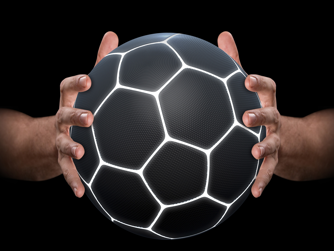
The data revolution poses the same questions, only more sharply. Today, athletes can measure every part of their performance. The opportunities for self-improvement are unprecedented – but so too are the risks. Privacy is critical. Breaches to personal data can undermine the integrity of the scouting process or the fairness of contractual negotiations; they might damage an individual’s health. Governments are rightly bringing in new laws to protect personal data, but our sport must develop its own culture of education and scrutiny.
As I look back at the path that brought me here and the people who supported me, I would like to think that my work has respected a clear set of values. I have always believed in the power of science and reason as we pursue the truth. If all of us are vulnerable to bias and wishful thinking, science can help us to make better decisions. And if we want to earn people’s trust, then we need to show our independence, and that means resisting commercial pressure.
But perhaps more than anything, I have tried to keep the human at the centre of things. Science and innovation have enormous potential to improve the lives of athletes, but nothing can replace the relationship between player and coach. Vast quantities of performance data might show that a player is tired and under-performing, but only a conversation, between people who trust one another, will tell us why. As every scientist knows, science has its limits.
Gregory Dupont
Gregory Dupont is President of FELIS, a company that puts science and innovation at the service of sporting performance and health. RELEASE is their independent digital platform that analyses the latest trends in research and innovation. In 2018, Gregory became a FIFA World Champion with the French national football team. From 2019 to 2021, he served as fitness coach at Real Madrid Fitness.
